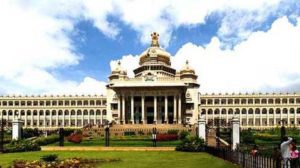Foreigners Tribunals and NRC| UPSC – IAS
The Foreigners (Tribunals) Order, 1964 was issued by the Central Government under Section 3 of The Foreigners Act, 1946. It is applicable to the whole country. Major amendments in the Foreigners (Tribunals) Order, 1964 were undertaken in 2013. The last amendment was issued in May, 2019. All these orders are applicable to the whole country and are not specific to any state. Therefore, there is nothing new in this regard in the latest amendment of May 2019.
- The May 2019 amendment only lays down the modalities for the Tribunals to decide on appeals made by persons not satisfied with the outcome of claims and objections filed against the NRC.
- Foreigners Tribunals (FTs) are quasi-judicial bodies meant to determine whether a person is or is not a foreigner under Foreigner’s Act, 1946.
- Foreigners Tribunals were first setup in 1964 and are unique to Assam. In rest of the country, a foreigner apprehended by the police for staying illegally is prosecuted in a local court and later deported/put in detention centres.
- Each Foreigners Tribunals (FTs) is headed by a member who can be a retired judicial officer, bureaucrat or lawyer with minimum seven years of legal practice.
- Earlier, powers to constitute tribunals were vested only with Centre. Recently amended Foreigners (Tribunal) Order, 2019 has empowered district magistrates in all States & Union Territories to set up tribunals to decide whether a person staying illegally in India is a foreigner or not.
Foreigners Tribunal and Supreme Court 2019 | UPSC – IAS
Supreme Court held that a Foreigners’ Tribunal’s order declaring a person as an illegal foreigner would be
binding and would prevail over the government decision to exclude or include the name from the National
Register of Citizens (NRC) in Assam.
- When the draft NRC was published in 2018, around 40.7 lakh people were excluded from the NRC. However, those excluded were allowed to file claims and objections with NRC Seva Kendras. The claims and- objections process will also take into account errors during the update and any new document submitted (like birth certificates, land records etc.)
- Once the final NRC is published, those excluded can approach Foreigners’ Tribunal, followed by further appeals from Guwahati High Court and Supreme Court.
- The State Government proposed to set up 1000 Foreigners Tribunals (FTs) to review the appeals of those declared as illegal immigrants.
- The decision of FTs cannot be abrogated through executive action. According to SC, the principle of ‘resjudicata’ (a judicially decided issue cannot be re-agitated) would apply on the decision of FTs and a person who has been declared an illegal immigrant cannot seek re-decision in normal circumstances.
- Those, whose appeals are rejected, will be sent to detention centres or deported




